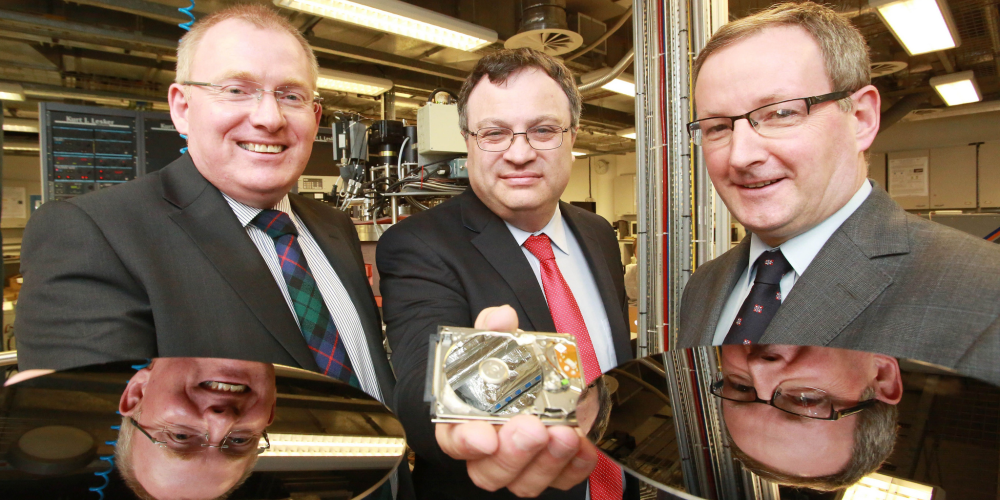The announcement that a Queen’s University Belfast led collaboration with the University of Glasgow and industry has received £8.1m for a new centre to tackle some of the challenges created by the increasing quantities of data generated by society has been welcomed by MATRIX Chair, Dr Bryan Keating.
Dr Keating said:
“This centre at Queen’s University will strengthen Northern Ireland’s position as a world leader in science and big data research and by committing to 50 new doctoral positions, it will enable us to compete more effectively in a global market place, in a field where we have already a high level of expertise. Industrial partners are a vital element for successful of this initiative and Seagate Technology, the industry leader in hard disc drives and storage solutions is one such industry partner. This centre is a perfect example of what will lead to symbiotic benefits between commerce and academia.
“The support given by the Department of Employment and Learning and one of the biggest companies based in Northern Ireland and Seagate Technology, shows their commitment to investing in Northern Ireland and the potential of its young people. Long term investment in skills and people is a key objective of MATRIX and this announcement endorses this strategy – highly skilled people are key to growing a thriving economy.”
The new Centre for Doctoral Training (CDT) at Queen’s, in collaboration with the University of Glasgow, and under the auspices of the Engineering and Physical Sciences Research Council (EPSRC), will help address a skills shortage in the photonics industry, and help develop new products and systems to address the expanding data storage needs of today’s fast moving digital world.
The new CDT, known as the EPSRC Centre for Doctoral Training in Photonic Integration for Advanced Data Storage, will address the shortage of skilled professionals in this field by educating fifty future scientists and engineers, over the next eight years.
The funding for the Queen’s CDT, which has been provided by the University and a range of partners including the Department for Employment and Learning in Northern Ireland, will enable the doctoral students to collaborate with 12 industry partners in a bid to generate new ideas for research and commercial opportunities that cannot yet be foreseen.
Queen’s Vice-Chancellor, Professor Patrick Johnston, said:
“Queen’s work in the area of photonics and advanced data storage is globally renowned, and it is a tremendously important sector for Northern Ireland and the UK. I wish to thank Professor Bowman for his leadership on this project, and the EPSRC, the Department for Employment and Learning and our industry partners for having the vision to support this Centre and help secure the sector’s future through ensuring a flow of highly skilled graduates and future industry and academic leaders.”
Minister for Employment and Learning, Dr Stephen Farry, said:
“I have been pleased to help facilitate this Centre for Doctoral Training, led by Queen’s and involving significant industry partners, including Seagate Technology. It is a strategically important development for Northern Ireland.
“The Centre will support 50 future scientists and engineers, who will benefit greatly from being part of an exciting and supportive learning experience while developing key skills that are crucial not only for themselves but also for the wider economy.”
Seagate, the industry leader in hard disc drives and storage solutions, is one of the industry partners involved. In 2010 they established ANSIN at Queen’s, a new advanced materials research and development hub.
Mark Re, Chief Technology Officer at Seagate said:
“The coming decade sees a huge challenge and opportunities in providing society with the data storage solutions it requires.
“Seagate Technology through our support and involvement believe that this CDT at Queen’s is a fantastic mechanism to develop the skilled staff required for this challenge and undertake research that could contribute towards new technology and where new synergies and ideas will emerge through collaboration with other CDT partners.”

